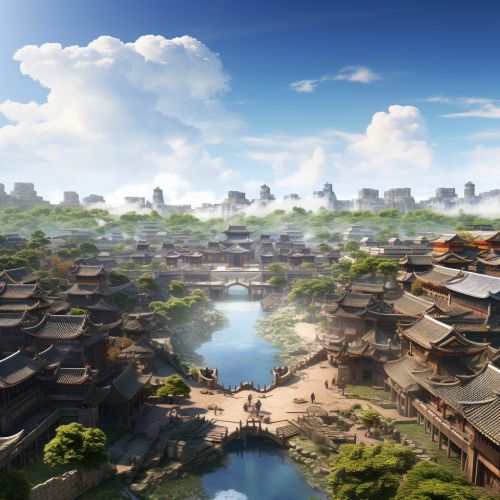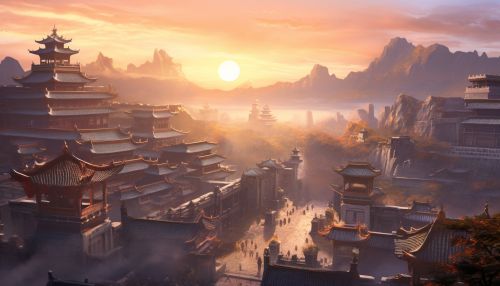Ancient China
Origins and Prehistory
The history of Ancient China can be traced back to the Paleolithic period with the earliest evidence of human habitation dating back to approximately 250,000 years ago. The discovery of Homo erectus fossils at the Zhoukoudian cave system near Beijing indicates the presence of early hominids in the region.
Xia Dynasty
The Xia Dynasty (2100–1600 BC) is the first dynasty in China to be described in ancient historical chronicles such as the Bamboo Annals, the Classic of History and the Records of the Grand Historian. However, the historical existence of the Xia Dynasty is still a subject of debate among historians due to lack of archaeological evidence.


Shang Dynasty
The Shang Dynasty (1600–1046 BC) is the earliest dynasty of traditional Chinese history supported by archaeological evidence. Excavations at the ruins of Yin (near modern-day Anyang) have uncovered oracle bones, which bear the earliest known significant inscriptions in China.
Zhou Dynasty
The Zhou Dynasty (1046–256 BC) followed the Shang Dynasty and was the longest-lasting dynasty in Chinese history. The Zhou Dynasty was divided into the Western Zhou (1046–771 BC) and the Eastern Zhou (770–256 BC).
Qin Dynasty
The Qin Dynasty (221–206 BC) was the first dynasty of Imperial China, lasting only 15 years. It was followed by the Han Dynasty which emerged in 202 BC. Despite its military strength, the Qin Dynasty did not last long due to the oppressive regime of its first emperor, Qin Shi Huang.
Han Dynasty
The Han Dynasty (202 BC – 220 AD) is considered a golden age in Chinese history, with its government structure, legal system and written language having a profound influence on the development of China.
Conclusion
The history of Ancient China is a rich tapestry of dynastic rule, cultural evolution, and technological innovation. From the Xia Dynasty to the Han Dynasty, each period left an indelible mark on the annals of Chinese history, shaping the nation we know today.
